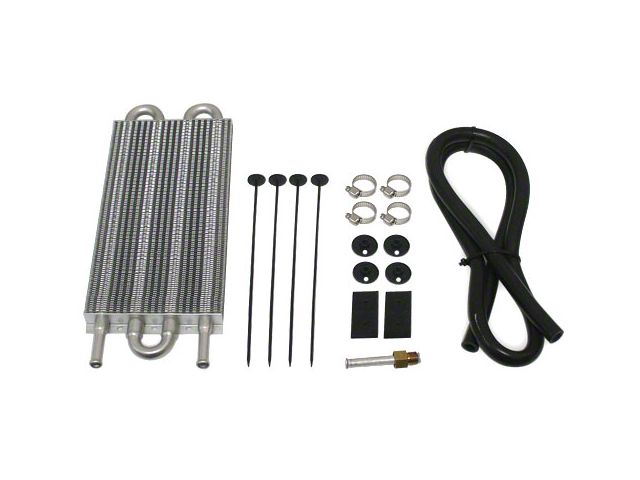Temperature Control: The Hidden Benefits of Engine Oil Coolers in Automobiles
In the world of automotive engineering, one often overlooked component plays a vital role in ensuring optimal performance: the oil cooler. While many car owners focus on common parts such as engines and tires, the significance of an oil cooler cannot be understated. This essential device guarantees that engine oil remains at a consistent temperature, allowing it to lubricate engine components effectively and protect against wear and tear.
As vehicles become more sophisticated and performance-driven, the heat generated during function increases significantly. Without an adequate cooling system, the oil can break down, leading to decreased efficiency, potential engine damage, and even expensive repairs. By understanding the hidden benefits of oil coolers, drivers can appreciate their role not only in preserving engine life but also in enhancing overall vehicle performance. spintax #### Comprehending Oil Heat Exchangers
Oil heat exchangers play a crucial role in supporting optimal engine performance by controlling oil temperature. As the engine operates , the oil is exposed to intense heat and pressure, which can lead to a drop in its viscosity and overall efficiency . High temperatures can break down oil more rapidly, diminishing its ability to lubricate moving parts and protect against wear. An oil cooler helps in managing these temperatures, ensuring that the oil remains at an effective operating level, thus improving engine longevity and reliability.
The construction of an oil cooler typically involves a heat exchanger that transfers heat from the oil to the surrounding air or coolant. This process aids to release heat that has developed during engine operation. In vehicles with high-performance needs, such as sports cars or trucks used for towing, oil coolers become essential for stopping overheating. By keeping the oil cooler than it would be without such a system, these components provide to improved overall engine health.
Additionally, oil coolers offer benefits in addition to temperature regulation. They can boost engine efficiency by allowing the oil to preserve proper lubrication properties even in extreme conditions. This efficiency leads to improved fuel economy, smoother engine operation, and minimized emissions. In conclusion , investing in a quality oil cooler can yield substantial returns in terms of vehicle performance and maintenance costs in the long run .
Benefits of Oil Cooling
A key benefits of oil coolers is their ability to regulate engine temperature efficiently. By maintaining optimal oil temperatures, these coolers help prevent overheating, which can lead to severe engine damage. Steady temperature control ensures that the engine operates within its designed parameters, encouraging longevity and reliability. This is crucial for high-performance vehicles, where the demands on the engine can be especially intense.
In addition to protecting against overheating, oil coolers enhance the efficiency of the engine. When the oil is kept at a stable temperature, it maintains its lubricating properties more effectively, ensuring that all moving parts work smoothly. This reduces friction and wear while enhancing general performance. As a result, vehicles equipped with oil coolers often experience improved fuel economy and reduced emissions, which leads to a greener driving experience.
Furthermore, using an oil cooler can extend the life of engine oil itself. Higher temperatures can cause oil to degrade more rapidly, leading to the need for more frequent changes. With an effective oil cooler, the oil stays in good condition for longer periods, which diminishes maintenance costs and enhances the vehicle's total efficiency. This combination of advantages underscores the importance of integrating oil coolers into vehicle design for best performance and durability.

Sustaining Maximum Performance
Ensuring that your vehicle's oil cooler is working efficiently is vital for preserving maximum functionality. A thoroughly checked oil cooler aids to manage the heat of the engine oil, stopping it from overheating. Overheating oil can cause inadequate lubrication, which in turn can lead to engine wear and heightened friction among moving parts. Routine inspections of the oil cooler and connected components can find any likely issues before they become serious, confirming that the engine operates within its ideal temperature range.
The purity of the oil cooler plays a critical role in its performance. Contaminants and debris can gather over the course of time, restricting the cooler's function to release heat. As a result, the oil may not return to the engine at the ideal temperature, impacting overall effectiveness. Scheduled maintenance, such as cleaning or replacing the oil cooler when needed, can greatly lengthen its lifespan and enhance engine functionality. Making holden cruze oil cooler that the oil cooler is clear of blockages is key in sustaining the sensitive equilibrium of temperature control.
Moreover, the grade of the oil used in the vehicle also impacts the performance of the oil cooler. Using high-quality oil with the appropriate viscosity not only improves lubrication but also facilitates in heat transfer, aiding the oil cooler's efficacy. Routine oil changes in accordance with the manufacturer's instructions help confirm that the oil remains effective and that the oil cooler can do its task correctly. By focusing on both the oil cooler and the type of oil used, vehicle owners can maximize performance and longevity.